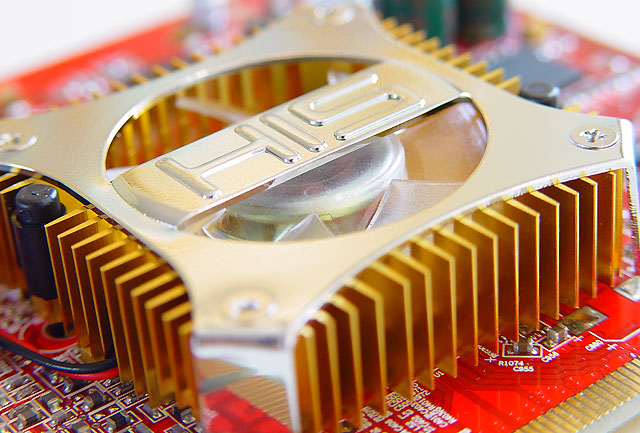Page 7
Overclocking
Before we dive into an extensive series of tests and benchmarks, we need to discuss overclocking. With most videocards, we can do some easy tricks to boost the overall performance a little. It's called overclocking the videocard. By increasing the frequency of the videocard's memory and GPU, we can make the videocard increase its calculation clock cycles per second. It sounds hard but it really can be done in less then a few minutes. I always tend to recommend to novice users and beginners not to increase the frequency any higher then 5-10% of the core and memory clock. Example: If your card would run at 300 MHz then I suggest you don't increase the frequency any higher than 330 MHz.
More advanced users push the frequency often way higher. Usually when your 3D graphics start to show artifacts such as white dots ("snow"), you should go down 10 MHz and leave it at that. The core can be somewhat different. Usually when you are overclocking too hard, it'll start to show artifacts, empty polygons or it will even freeze. I recommend that you back down at least 15 MHz from the moment you notice an artifact. Look carefully and observe well.
All in all... do it at your own risk. Overclocking your card too far or constantly to its limit might damage your card and it's usually not covered by your warranty.
You will benefit from overclocking the most with a product that is limited or you may call it "tuned down." We know that this graphics core is often limited by tact frequency or bandwidth limitation, therefore by increasing the memory and core frequency we should be able to witness some higher performance results. A simple trick to get some more bang for your buck.
The GeForce 6800 GT at default clock speeds is doing 500 MHz core and 2x380 MHz memory (760 effective). Overclocked it was capable of running at a 545 MHz core and 400 MHz (800 effective) memory frequency. Now that is reasonable bang for your bucks isn't it?

The Test System
Now we begin the benchmark portion of this article, but first let me show you our test system.
| Test system |
|
Benchmark Software Suite:
* For four of these games we are making use of a custom time demo. Neither NVIDIA nor ATI knows what time demo we are using. These are non-public tests that were recorded for us only. We are not going to make them public either as they are and will remain internal material. Therefore the chipset manufacturer will not have the chance of optimizing it to that specific benchmark time-demo. We will do our very best now and in the future to keep a close eye on optimizations and cheats, we need to be able to show you objective results. However in the end this should be a responsibility for the chipset designer, if that entity fails to do so, then it'll lose consumer's trust and will dig it's own grave. |
